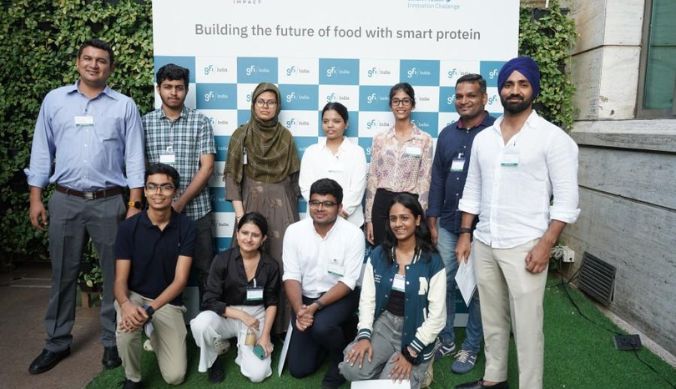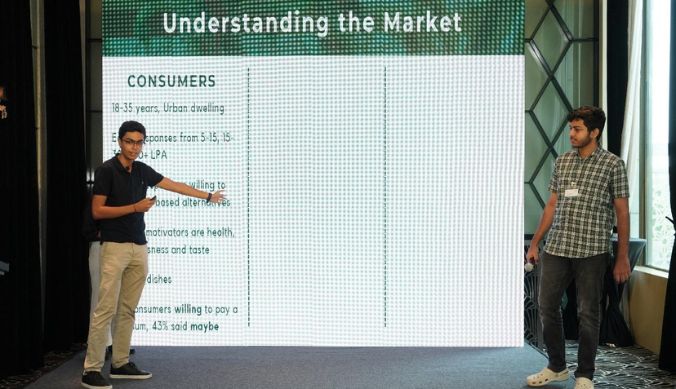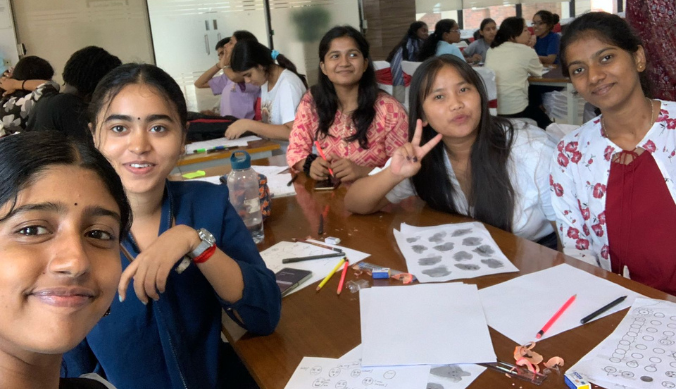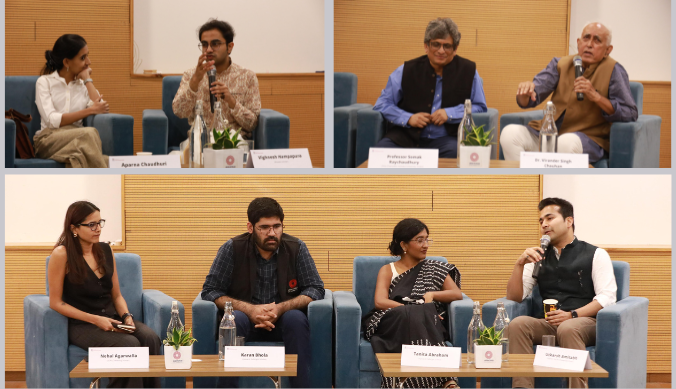ISPIC 2023: My transformative journey from Persistence to ThePrint!
The article explores Karan Kapadia’s 5-month journey in entrepreneurial exploration while underscoring the urgency of smart protein solutions in light of environmental and ethical concerns
I recently secured a spot in the Top 3 (out of 80+ teams) of the India Smart Protein Innovation Challenge (ISPIC 2023) organised by Good Food Institute India, a think-tank and international organization working to accelerate alternative protein innovation. Participating in the challenge, I was able to network with senior investors, incubators, and scientists who are spearheading research in this space. Additionally, I was awarded a cash prize of Rs. 2 lakh as one of the winners, and the competition was featured on ThePrint, FoodTechBiz, and ANI.

As I reflect on my journey, I would like to share some of the highlights here:
ISPIC was a 5-month-long exciting journey where a cohort of 200+ professionals, researchers, and students across India came up with innovative solutions to address the scientific white spaces and bottlenecks in the alternative protein and dairy sector.
One example of the provocative questions that we tackled at ISPIC 2023 was, ‘How will you feed nearly 10 billion people globally by 2050, while safeguarding the environment, public health, and our scarce natural resources?‘ The competition was structured in a very holistic manner, covering the scientific, entrepreneurial, and policy-related aspects of Smart Protein. In the Indian context, we also looked at topics like protein deficiency, nutrition, and animal welfare.
The particular solution that I worked on with my team was about the ‘Channel Strategy for selling Smart Protein,’ focused on the HoReCa segment. India already has 30+ mock-meat brands, and this number is constantly increasing. These brands sometimes struggle with repeat orders and organically growing their revenue. We creatively presented some methods to strike B2B partnerships with restaurants and established QSR Chains, and how this can be really impactful for Indian Mock-Meat and Vegan Dairy brands.

The competition was also transformative for me as an individual, as I got to work with a diverse group of professionals hailing from different geographies and educational backgrounds, from Food Technology to Chemical Engineering. The journey was a true test of my perseverance! The earlier rounds of the challenge included online quizzes, and I remember waking up at 7 AM during my family trip in Las Vegas to compete in the quiz. My sheer passion for the field and the competition got me to do so, and without it, I wouldn’t have made it to the Demo Day (final round) that was held at The InterContinental in Mumbai. I also had the pleasure of experiencing and trying the vegan meat offerings in the western context while travelling in the US, and this inspired me to propose similar solutions to bring to the Indian market.
In one of my entrepreneurship courses at Ashoka called ‘Entrepreneurial Strategies for Climate Action’ by Prof. DVR Seshadri, I remember studying a very interesting case about the company ‘Impossible Foods’ and their strategies for growth and innovation. This included a tie-up with Burger King (HoReCa sales channel) in the west. This provoked me to explore the white space in the Indian market as well, and inspired the great solution that I eventually presented. An entrepreneurial mindset has been at the forefront of my thoughts and has truly enabled me to go above and beyond, looking at the world from a disruptive mindset. To make things even better, Startup Ashoka 2023 was around the corner right after my competition. I took the opportunity and used my learnings from ISPIC 2023 to come up with a venture idea related to smart proteins, which I was able to refine and pitch to a distinguished panel of entrepreneurs within a span of 24 hours. Networking with peers and forming a team to work on the idea was a super fun and productive experience for me!
in conclusion, I want to share that Smart Protein is the need of the hour. The animal agriculture industry contributes more emissions to the atmosphere than the entire transport sector combined, whilst also having ethical constraints and cruel implications for the victims. With the growing focus on sustainable living, we even need to look into transforming our own plate.
(Written by Karan Kapadia- UG 25 Economics and Entrepreneurship)
Study at Ashoka













